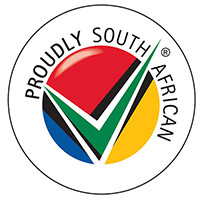South African female entrepreneurs are growing in numbers, but too many continue to battle to get access to funding, making the sustainability of their start-ups a struggle. Many do not make it to the theee-year mark.
When my sister and I launched our entrepreneurial journey in 2015 in the production of our traditional ginger beer, Yamama Gemmer, we never imagined that financing our business would be such a hard task.
There are many reasons why we might have quit seeking funding through traditional banks. We knocked on the doors of people who did not believe that we could run a lucrative business selling gemmer.
We were laughed at when we sought the assistance of the appropriate government agency that could patent our product and we were told that we were wasting our energy trying to enter the retail market with ginger beer. It was difficult to walk into a financial institution asking for funding for a business that few believed in.
However, with the assistance of associations such as our membership of Proudly SA, Seda and GEP, we have sustained our business model against the odds and are now in our fourth year, and largely self-funded.
Financing is just one of the factors that can hinder the development of a female-owned business, but of course, it is critical.
Being taken seriously by a bank is hard enough without the inequalities which women face on a daily basis.
Historically, most businesses have been owned by men, run by men and financed by men.
Traditional lenders, including banks, have a history of denying businesses which break this mould. While the number of women-owned businesses is rising, banks still do not take the concept of women-run businesses seriously, and therefore deny us any kind of financing. In the rare cases that they do lend to women, the loans we receive come with terms and conditions that are never as accommodating and reasonable as those applied to loans to male-owned businesses.
If you choose to start off by self-funding, you generally get yourself in debt and then your personal credit score becomes questionable. Banks and many other lenders point to credit scores and these become a hurdle preventing your loans from being approved.
So, in order to prevent taking on more risk than they deem necessary, banks will only approve business loans for women with excellent credit scores.
As it stands, recent statistics indicate that 51percent of South African women have outstanding debts.
Another typical condition lenders apply to loan applications is that the business should have been operating for at least two years, with a business history that can be substantiated and a positive cash flow, plus they want to see agreements with retailers for the uptake of your product.
The reality is that most small businesses are not running proper accounting systems, and do not even have a business plan in place. Nor will they have up to R30000 to pay someone to assist them to put one together. This is where we found ourselves going into the second year of our business.
A further stringent condition often applied is that bank loans are considered secured loans, meaning that they must be backed by assets such as properties, equipment, cash savings, etc. Not only do your business assets become collateral for your bank loan, but your personal assets such as your house and/or your car can sometimes be included.
In these cases, seeking an alternative source of business financing such as a government grant is crucial, but this also comes with its own challenges.
Lenders needs to be more progressive and ready to change the way that business-women are treated in the field of business lending.
We have massive potential to participate in the economy, to empower more women, to contribute to a significant reduction in unemployment and to the reduction of poverty in the next few years, if we are seen to be the force to be reckoned with that we know we are.
The latest statistics show that South African women are taking the lead as entrepreneurs and are contributing an increasing share to the national revenue.
We should be taken more seriously.


